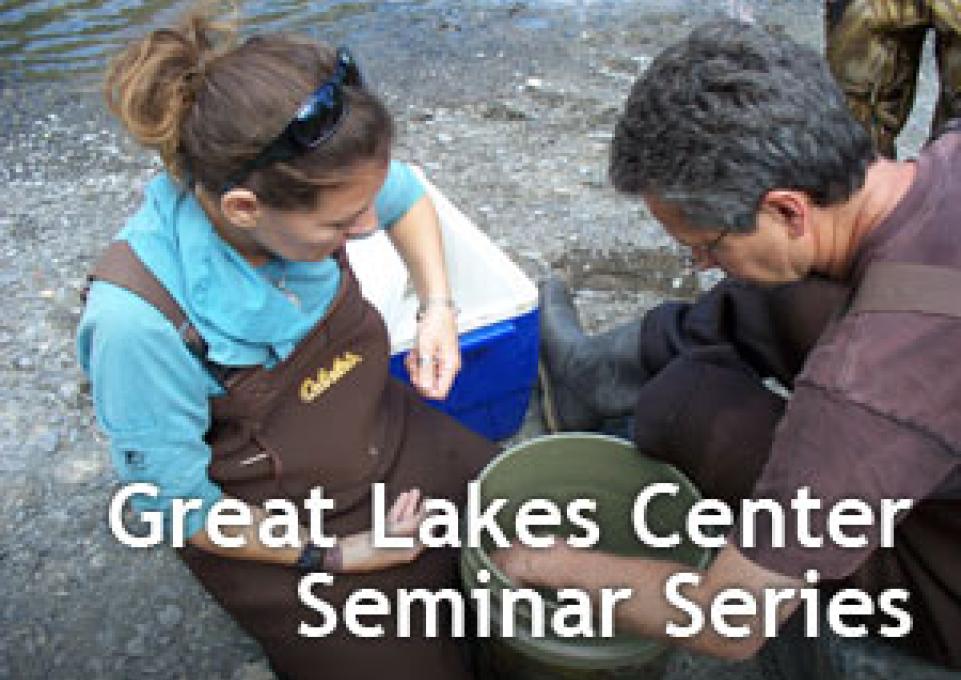
Nationally known scientists will be at Buffalo State this semester to discuss their research in the Great Lakes Center Seminar Series. Each presentation will be held from 12:15 to 1:30 p.m. in Science Building 272.
Richard Barbiero, senior environmental scientist at Computer Sciences Corporation, Chicago, will present “Recent changes in the lower food webs of the Great Lakes” on Thursday, September 25.
Robert J. Warren II, assistant professor of biology, will present “Ghosts of cultivation past: Native American dispersal legacy persists in tree distribution” on Thursday, October 9.
Chris Barnhart, professor of biology at Missouri State University, will present “Where There’s a Gill, There’s a Way: Parasitism by Freshwater Mussels” on Thursday, October 23. He and his students have developed innovative techniques for the culture of mussels for research and population restoration, and he teaches professional training courses and workshops in mollusk ecology and toxicology at the National Conservation Training Center and for the Society of Environmental Toxicology and Chemistry. Barnhart has received the Conservation Champion Appreciation Award of the U.S. Fish and Wildlife Service and the Lifetime Achievement Award of the Freshwater Mollusk Conservation Society.
Katharina Dittmar de la Cruz, associate professor of biological sciences at the University at Buffalo, will present “Evolutionary trends and ecological drivers of eye reduction in parasites" on Thursday, November 20.
Elizabeth Hinchey, a scientist with the United States Environmental Protection Agency, will speak on Thursday, December 4.
“We are happy to host these lecturers,” said Lyuba Burlakova, a senior research scientist with the Great Lakes Center. “Many of the speakers are known not only nationally but also internationally because of the innovative research they are conducting in their areas of expertise.”
The Great Lakes Center Seminar Series promotes collaboration among Buffalo State scientists, scientists from other universities, and scientists who work with agencies responsible for researching and implementing science-based environmental management practices.
